
Music legend Boz Scaggs talks about 9 career-defining records
In a music-making career that has spanned almost 50 years, Boz Scaggs is amazed at how little things have changed. "My first album was done in two days," he says. "We knocked it right out, kind of like what I did with my new album, Memphis – that one was done in three days. The circle is almost complete."
Since making his debut with 1965's Boz, which he followed with a two-year stint as the lead singer for the Steve Miller Band before setting solo sail once again, Scaggs has spun magic with a rich, unpredictable genre-mash of R&B, pop-rock and jazz, scoring both critical hits and epic mainstream knockouts with the kind of personal artistry that makes everything he does feel realistic.
“Music is in some ways a muse," Scaggs says. "But in other ways it’s an occupation, and in other ways it’s a habit. It takes all of those forms, because you’re always creating something different – lyrics, music, a set list, a band. You can get caught up thing about all of that stuff, but then sometimes you just have to bang it out. That’s when it becomes an adrenaline freak-out, which can actually produce what a muse cannot."
Scaggs has sometimes spaced albums eight years apart, but he seems to be picking up the pace once again - Memphis follows his last release, Speak Low, by only five years. Recorded at the legendary Royal Studios in the town that inspired its title, the album sees Scaggs and producer Steve Jordan guiding an ace band through an eclectic, superbly arranged group of covers (by such songwriters as Willy Deville, Moon Martin and Al Green, among others) and two sparking originals. In his own appealing and highly idiosyncratic way, Scaggs explores New Orleans R&B, '70s soul, rock 'n' roll, jazz and early blues with a kind of intimacy that gets to the heart of the genres' many and varied mysteries.
On the following pages, Scaggs talks about how he crafted Memphis while reflecting on the creation of eight notable studio discs from his storied career.
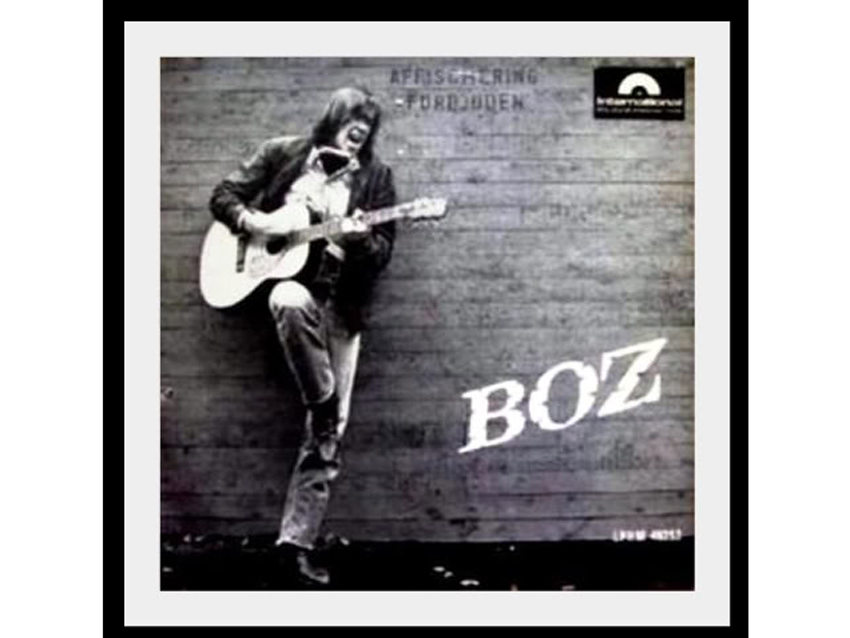
Boz (1965)
“I was playing in clubs in Stockholm and Copenhagen, and occasionally I played blues and some jazzy funk stuff with these electric guys. I was asked to come to the studio and help a band that was re-creating an old Coasters song. I knew American R&B and blues, so they wanted me to help with the lyrics and the feel of the song.
“The producer liked me – we had hit it off – and he called me and asked, ‘How would you like to make your own record?’ I said, ‘Sure. What’s it about?’ And he said, ‘You know, just the stuff that you’re playing in the club. Come to the studio.’ We took two days to do it, and I simply played what I was playing in the clubs and things that I had been doing for a few years.
“I didn’t feel uncomfortable in the studio. It was a room with some microphones, and I was used to rooms with microphones. I wasn’t trying to set the world on fire; I was just doing what I did. I hear it back, and it’s kind of amusing to listen to what music I was doing and what my interests were. They really haven’t changed that much.”
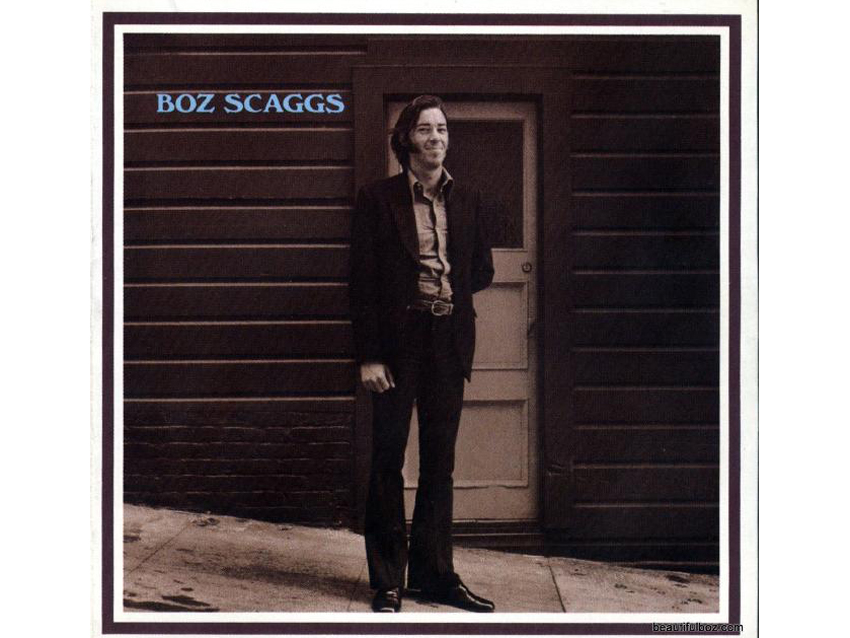
Boz Scaggs (1969)
“Jann Wenner was a neighbor of mine. He lived across the street from me. He had been a friend during the past year, after I had gotten back to San Francisco. He was just starting Rolling Stone at the time. He loved music, and he happened to like my music.
“Jann was beginning to meet record company people, and he mentioned me to Jerry Wexler at Atlantic Records and said that he wanted to play him my demo. Jerry liked it and said he wanted me to do a record for Atlantic. He then said to Jann, ‘Well, you love music, and you know Boz, so why don’t you produce it?’ Jann did an excellent job of helping me find a place to record and the musicians to work with. He was a great help to me.
“Duane Allman was a pure joy to work with. He had been working with some of the guys in the Muscle Shoals rhythm section for a few years, but he left to go start the Allman Brothers Band. We called him in and got a special pass for him to come in and rejoin the section to do this record. It was a real homecoming for the Muscle Shoals guys to see Duane again. Everybody loved him and missed him. There was a special kind of energy that went into making the record when he was present.”
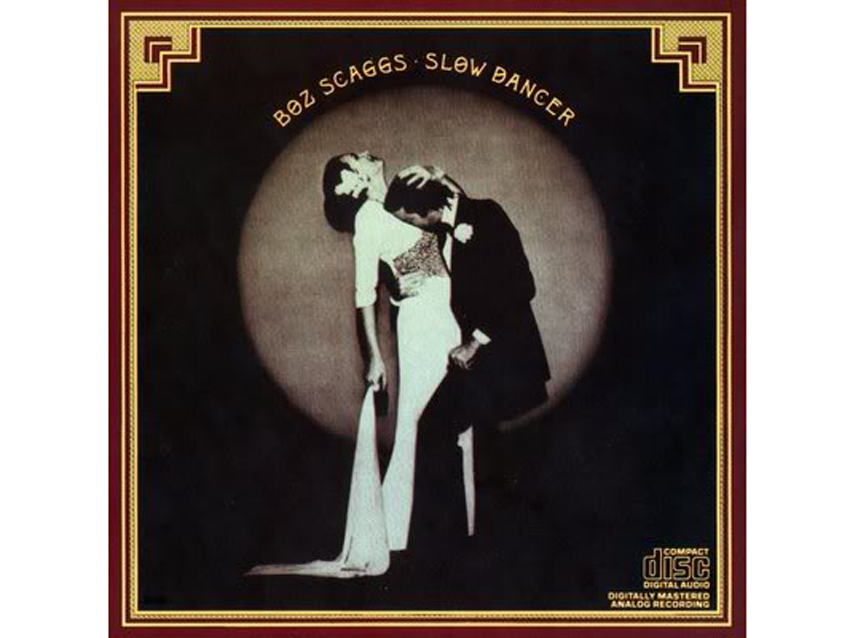
Slow Dancer (1974)
“There were a few records before this one, but it’s notable because it’s the first album I did with LA studio musicians. Motown was in the process of shutting down its studio in Detroit, and a lot of those players moved to LA. The producer, Johnny Bristol, suggested that we round up a lot of those musicians – it was a very eye-opening experience to be working in LA with these studio cats.
“The record was an enormous breakthrough for me, as evidenced by the fact that I continued to make my records in LA with studio musicians. The sessions were all about everybody getting in there, hitting the charts and going fast. It was a real thrill hearing those guys.”
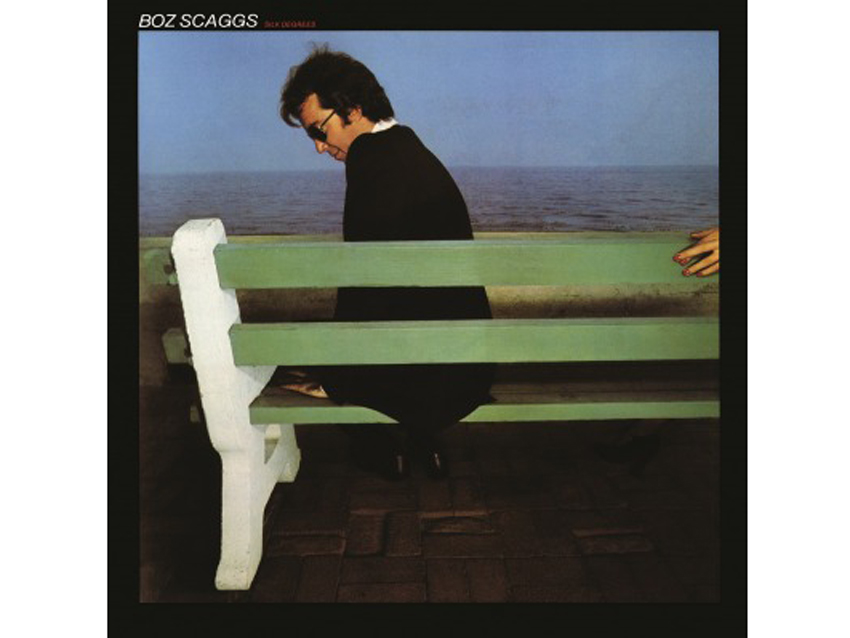
Silk Degrees (1976)
“If this had been my first record, it would have been one thing, but this was my sixth or seventh album. I had already been through the hopes-and-expectations phase of recording, but this one did feel special to me because of the musicians involved.
“I had hit a stride in my songwriting after making the Slow Dancer record. Something clicked inside of me, and I had a little bit of a better direction for myself. Finding such camaraderie with the musicians, that was a big hit, a real thrill, but I didn’t have any expectations about what it might become.
“Lowdown was the one that we were particularly surprised with in the studio; it’s the one that we felt we had hit a nerve with. But we were talking about it and saying, ‘It’s too bad that this is the one that we really nailed, because it’ll never be a single or a hit – it’s just too strange for the times.’”
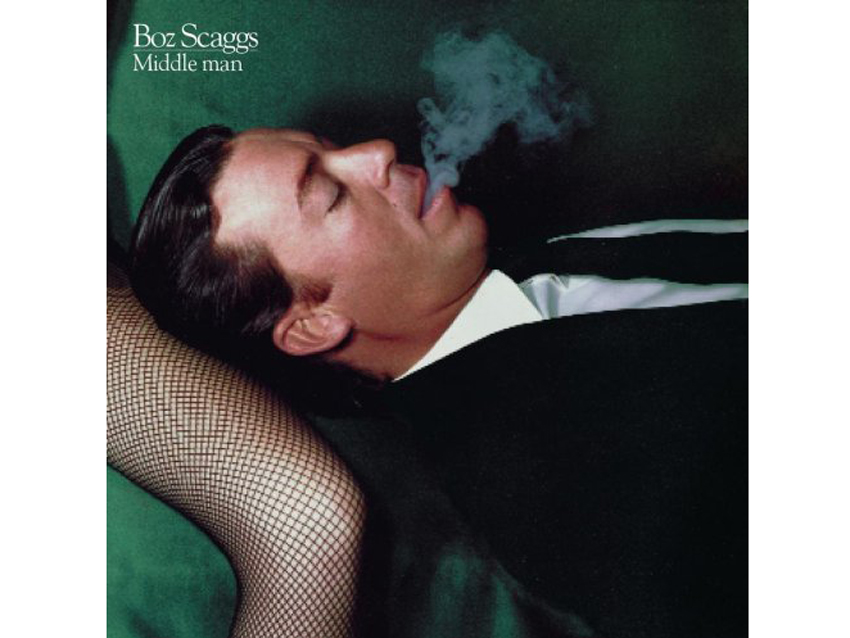
Middle Man (1980)
“David [Foster] was the arranger and co-writer on this project with me. It came about because David wanted to work with me, and I wanted to work with him, and the producer, Bill Schnee, was friends with both of us, and he proposed that. It seemed sort of natural. David was friendly with David Paich, Jeff Porcaro and David Hungate, whom I had made Silk Degrees with. We did great work together.
“[Following Silk Degrees] “There was a change in the lineup of musicians. There was a little bit of a different contract that was being presented among the principle people making the records. It was going to involve some sort of a compromise that I didn’t want to face. We just moved on. Of course, there’s a great deal of pressure – some of it’s intentional, some of it’s felt, some of it’s real, some of it’s not. To go in and hit that ball over the fence again… my attitude was, ‘Let’s just go in and make a record.’”
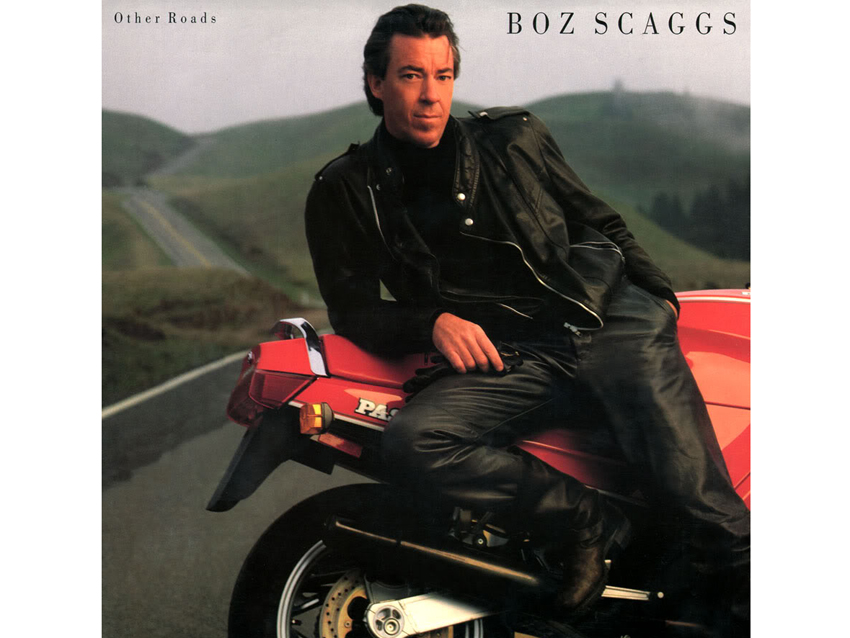
Other Roads (1988)
“I did three songs with Stewart Levine and another dozen songs with Bill Schnee. It was a strange one because I had been away from it all for seven years. I took some time off, and so getting back into it was a bit awkward. I wasn’t writing, but then I hooked up with a couple of good co-writers, musicians and arrangers and started up again.
“It was like trying to fit three or four or five different elements together, and I didn’t really feel at the core of it all. I was out of practice. Still, it was a blast to make this record, and my association with Jeff Porcaro and Marcus Miller and Stewart Levine felt like a big comeback party for me. Jeff is one of the truly great drummers of our generation.”
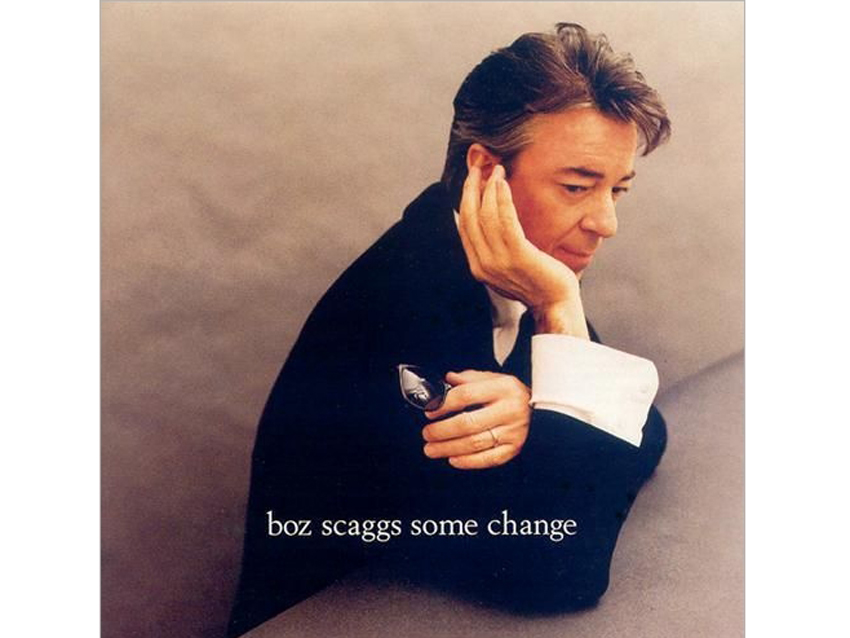
Some Change (1994)
“I went through a record company change and was just starting to get my feet back on the ground. When the new contract came around, I was excited and started writing. I realized that I had missed a few beats by being away for so long, but I took my time and did the record locally, in San Francisco. It was the beginning of a new era for me.
“I was really working for myself. I was writing to get it right and be as close to the process as I could – as a singer, too. I was working with somebody who had become a friend, Ricky Fataar, who co-produced it with me – he’s a great drummer. We just took our time. We did it very organically.
“We rented a couple of big, empty buildings, bought recording equipment in, and we just hammered it out – day by day, song by song. I was very involved with the record in a way that I never had before as a producer and as a guitar player. I had never wanted to feature my guitar playing because I was using session guys who were so great; I was intimidated to some extent. So here I wanted to be a guitar player and be more involved in the process.
“It was a second round. I had my first decade in the ‘70s and the success that came with that; I’d took a decade off, and I felt that starting with this record, it was a new beginning. I’m glad I started over in this way because it’s led me to where I am now.”
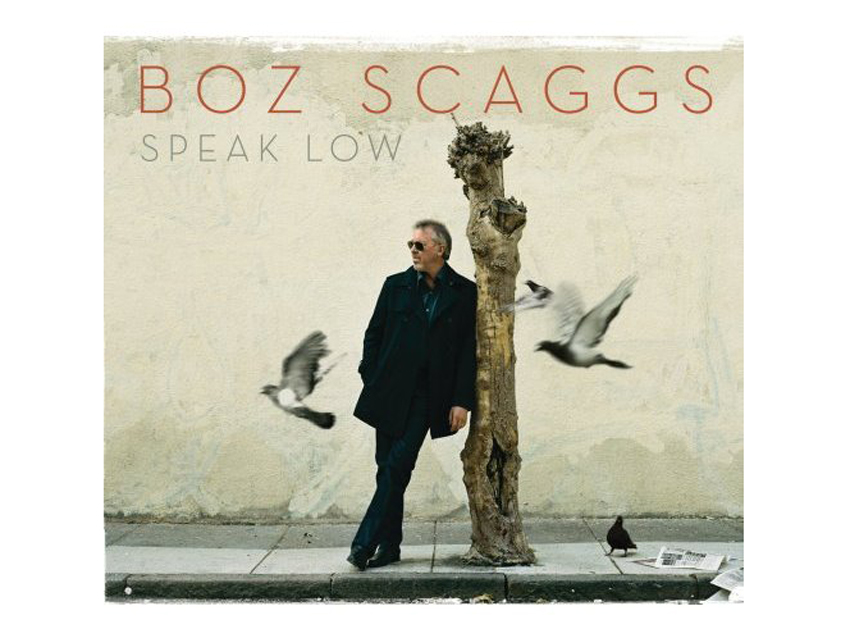
Speak Low (2008)
“I had made my first sort of standards record a few years earlier [2003’s But Beautiful], and I wanted to take the next step with that music. I was interested in enhancing the instrumentation, and I wanted to work with a string quartet, flutes and some baritone and bass clarinets.
“By chance, I was passing by the Blue Note jazz club one night with my son, and I heard this music coming out of the place. It was just what I wanted to do, sort of Gil Evans-ish arrangements with vibes and percussion. I went into the club, and as it turned out, a few friends of mine were on the set that night. One of them was an arranger named Gil Goldstein.
“Gil and I got to talking, and that led to us trying out a few songs together, which led to this second standards record. Gil and I, over a period of a year and a half, collaborated between New York and San Francisco. We finally arrived at the material, and then Gil took it back and arranged it. We brought it back to San Francisco to work on it with the rhythm section, and later to New York to overdub the string quartet and the horns and so on. It was kind of a dream come true to get some of that music fleshed out. It’s beautiful material, and we put our own stamp on it.”
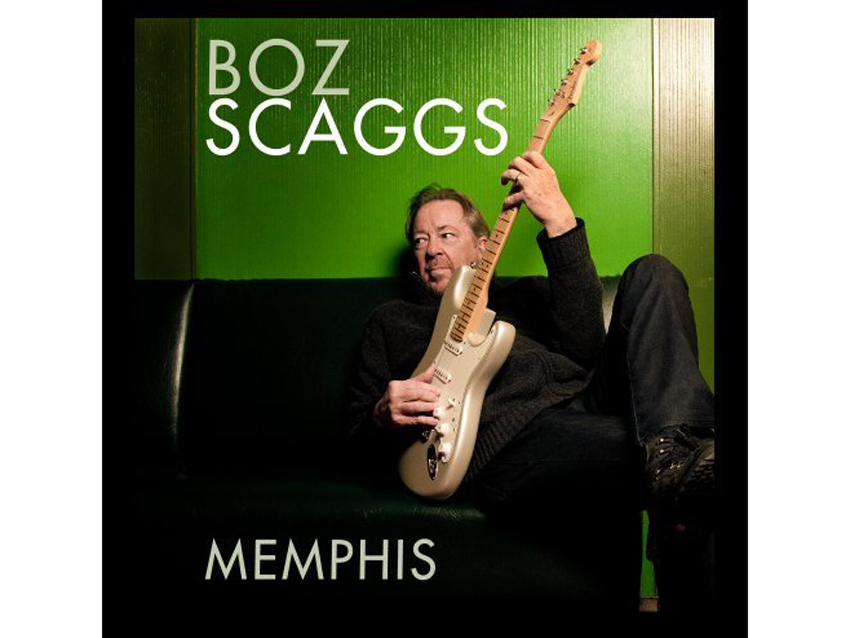
Memphis (2013)
“I wanted to get together with Steve Jordan, somebody I have tremendous respect and admiration for as a drummer and a musician and as a producer, and see what we could do together. I wanted to be produced by him. By that, I mean that I just wanted to be a singer and a guitar player. I didn’t want to feel like I had to choose the studio, the musicians – I knew that Steve and I would agree on those kinds of things.
“It turned out to be a wonderful experience – everything I wanted it to be. I got to be just a singer. Steve and I conferred on songs, musicians, studio, when, where, why, how, and we just landed in the same place.
“Choosing songs to cover isn’t simple; it’s a process that takes months and months – years, in some respects. I go through a lot of material because I’m always looking for stuff that I want to sing. I’ve been doing it a lot lately because I play with Donald Fagen and Michael McDonald – we’ve got a band, The Dukes. So we look at a lot of great R&B material as a natural course of things.
“I had already assembled some songs that we didn’t do with The Dukes. Knowing that I was working with Jordan in particular, I focused on a particular vein of music; I have a sense of his taste and style. We put our heads together, and then I made some demos of songs that I thought fit my voice. We decided on a short list of 12 songs and knocked them out.
“I hear from a lot of people who say, ‘I’m really glad you did those songs. I’m really glad that people will think of Willy DeVille again.’ He had a very successful and large fan base in Europe. They sort of ‘got’ him there. He never had that stature in America, although he had a lot of fans and was engaged with the music of his time and place. He won’t be forgotten.
“These were all second or third takes. The band was there; we’d fix any mistakes and move on. It didn’t seem possible, and we were amazed at the end of the third day that it was all done. We recorded horns and some strings on the fourth day, and on the fifth day we went home.”
Joe is a freelance journalist who has, over the past few decades, interviewed hundreds of guitarists for Guitar World, Guitar Player, MusicRadar and Classic Rock. He is also a former editor of Guitar World, contributing writer for Guitar Aficionado and VP of A&R for Island Records. He’s an enthusiastic guitarist, but he’s nowhere near the likes of the people he interviews. Surprisingly, his skills are more suited to the drums. If you need a drummer for your Beatles tribute band, look him up.
